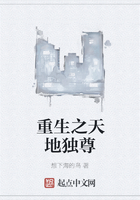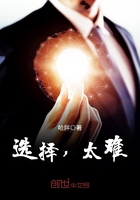Or the economic commune might settle the matter without more ado by paying to each member, for six hours of labour, the product of less than six hours, say, of four hours, of labour; that is to say, instead of twelve marks only eight marks a day, leaving the prices of commodities, however, at their former level. In this case it does directly and openly what it strived to do in a hidden and indirect way in the former case:
it forms Marxian surplus-value to the amount of 120,000 marks annually, by paying its members, on outright capitalist lines, less than the value of what they produce, while it sells them commodities, which they can only buy from it, at their full value. The economic commune can therefore secure a reserve fund only by revealing itself as an "ennobled" truck system *13 on the widest possible communist basis.
So have your choice: Either the economic commune exchanges "equal labour for equal labour" {257}, and in this case it cannot accumulate a fund for the maintenance and extension of production, but only the individual members can do this; or it does form such a fund, but in this case it does not exchange "equal labour for equal labour".
Such is the content of exchange in the economic commune. What of its form? The exchange is effected through the medium of metallic money, and Herr Dühring is not a little proud of the "world-historic import"{D. C. 341} of this reform. But in the trading between the commune and its members the money is not money at all, it does not function in any way as money. It serves as a mere labour certificate; to use Marx's phrase, it is "merely evidence of the part taken by the individual in the common labour, and of his right to a certain portion of the common produce destined for consumption", and in carrying out this function, it is "no more 'money' than a ticket for the theatre". It can therefore be replaced by any other token, just as Weitling replaces it by a "ledger", in which the labour-hours worked are entered on one side and means of subsistence taken as compensation on the other. [121] In a word, in the trading of the economic commune with its members it functions merely as Owen's "labour money", that "phantom" which Herr Dühring looks down upon so disdainfully, but nevertheless is himself compelled to introduce into his economics of the future. Whether the token which certifies the measure of fulfilment of the "obligation to produce", and thus of the earned "right to consume" {320} is a scrap of paper, a counter or a gold coin is absolutely of no consequence for this purpose.
For other purposes, however, it is by no means immaterial, as we shall see.
If therefore, in the trading of an economic commune with its members, metallic money does not function as money but as a disguised labour certificate, it performs its money function even less in exchange between the different economic communes. In this exchange, on the assumptions made by Herr Dühring, metallic money is totally superfluous. In fact, mere book-keeping would suffice, which would effect the exchange of products of equal labour for products of equal labour far more simply if it used the natural measure of labour-time, with the labour-hour as unit -- than if it first converted the labour-hours into money. The exchange is in reality ****** exchange in kind; all balances are easily and simply settled by drafts on other communes. But should a commune really have a deficit in its dealings with other communes, all "the gold existing in the universe" {D. Ph. 96}, "money by nature" {D. C. 39} though it be, could not save this commune from the fate of having to make good this deficit by increasing the quantity of its own labour, if it does not want to fall into a position of dependence on other communes on account of its debt. But let the reader always bear in mind that we are not ourselves constructing any edifice of the future;we are merely accepting Herr Dühring's assumptions and drawing the inevitable conclusions from them.















